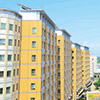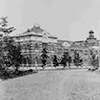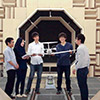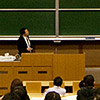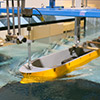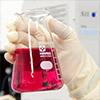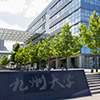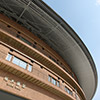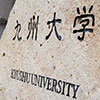Educational Aims
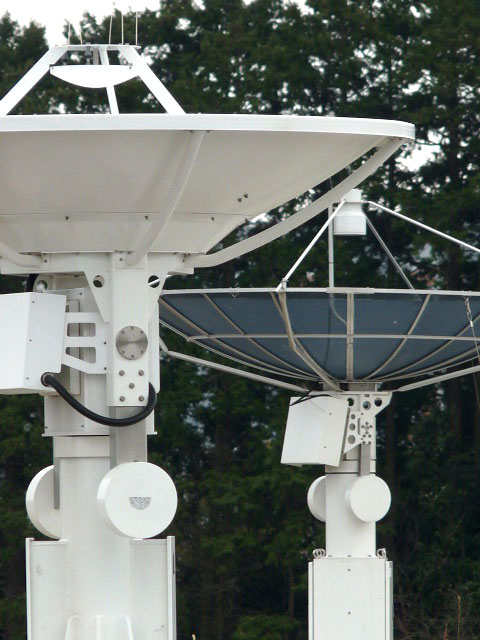 Aeronautics and Astronautics aims at the development of the advanced industrial fields needed to expand the human sphere of activities. The educational goal of this study is to foster researchers, technical experts, and educators who have acquired integrated skills as well as highly advanced expertise and internationality through the mastery of theoretical concepts of engineering based on the mechanics and pursuit of system engineering peculiar to the development of aircraft and spacecraft. In addition, we seek to nurture their abilities so that they can identify and approach issues that may be generated from expansion of the operational areas of aircraft and spacecraft, and contrive unique solutions for them. For this goal, our department has set the curriculum policy as follows:
Aeronautics and Astronautics aims at the development of the advanced industrial fields needed to expand the human sphere of activities. The educational goal of this study is to foster researchers, technical experts, and educators who have acquired integrated skills as well as highly advanced expertise and internationality through the mastery of theoretical concepts of engineering based on the mechanics and pursuit of system engineering peculiar to the development of aircraft and spacecraft. In addition, we seek to nurture their abilities so that they can identify and approach issues that may be generated from expansion of the operational areas of aircraft and spacecraft, and contrive unique solutions for them. For this goal, our department has set the curriculum policy as follows:
- each highly specialized and advanced academic subjects related to the various fields of engineering and science
- Implement educational research that integrates technology and academic studies from the various fields of engineering and science
- Produce individuals who have the ability to work in a wide range of fields requiring advanced technology and information
- Aim at the mastery of integrated engineering and system engineering needed to integrate studies from multiple fields, while also being able to demonstrate exceptional mathematical precision.
- Aim at a mastery of applied mechanics that enables the construction of mathematical models of various problems, and which enables a deduction of a phenomenon based on basic information of the phenomenon or on a theory of natural science
- Nurture the ability to create unique approaches to technical tasks or to academic studies in unexplored fields
- Nurture the ability to communicate internationally through the experiences of attending academic meetings and delivering presentations
- Actively promote support measures for applicants for the doctoral courses
Admission Policy
The field of Aeronautics and Astronautics aims at the development of the advanced industrial fields needed for the expansion of the human sphere of activities. It can be said that Aeronautics and Astronautics is unique among other industrial fields in that it deals with specified vehicles such as aircraft and spacecraft. The educational goal of this course of study is to foster researchers, technical experts, and educators who have acquired integrated skills, as well as highly advanced expertise and internationality, through the mastery of theoretical concepts of engineering based on the mechanics and research of systems engineering peculiar to the development of aircraft and spacecraft. With this goal in mind, we expect those who aim to specialize in this department to possess the following qualifications:
- The passion to advance developments in the sky and space fields
- A solid grasp of the basic academic skills needed to integrate studies from multiple fields within engineering and science
- An understanding of the basics of integrated engineering and systems engineering needed to conduct and integrate research in multiple fields while also being able to demonstrate exceptional mathematical precision
- An understanding of the basics of applied mechanics that enables the construction of mathematical models of various problems, and which enables a deduction of a phenomenon based on basic information of the phenomenon or on a theory of natural science
- The motivation to actively take on unexplored fields, technical tasks or academic studies generated by the expansion of the operational areas for aerospace planes
- A strong desire to enhance the internationalization that is indispensable to state-of-the-art research and development
Overview
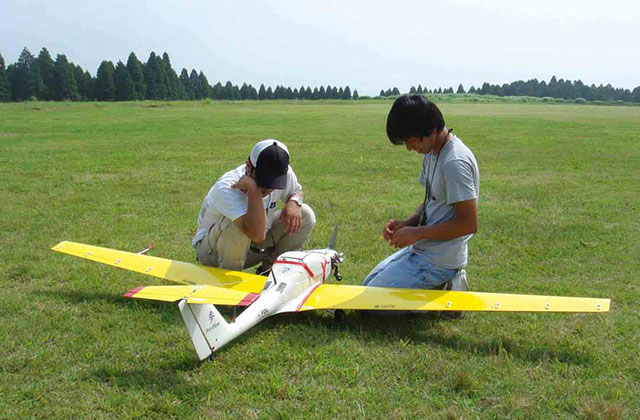
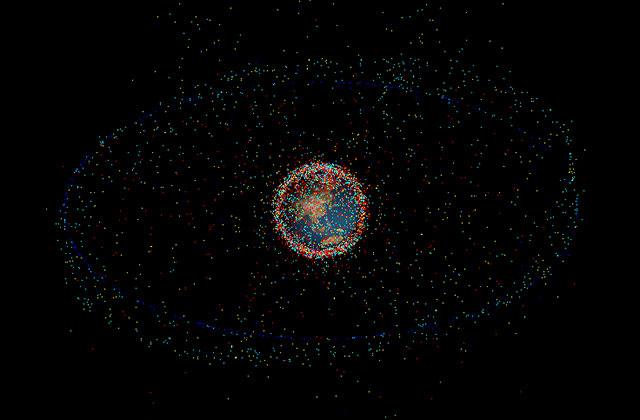
The Department of Aeronautics and Astronautics was established in April 1996 as the result of several expansions of its predecessor, the Department of Applied Mechanics, founded in 1953. Our department offers advanced education and research opportunities that are designed to deepen the basic understanding of aeronautics and astronautics acquired during undergraduate study. We especially focus on training based on engineering-oriented thinking by applying mathematics and dynamics.
The academic field of Aeronautics and Astronautics has three notable features: comprehensive ability, a mathematical approach, and an appreciation of natural science and scientific methodology. In order to overcome extreme environmental conditions, it is necessary to completely master the scientific methodology related to this field. A methodology starts by formulating a hypothesis derived from results in natural science, and is advanced by conducting experiments and observing the results, and finally provides an interpretation or explanation of the results according to theory. In certain cases, more experiments are required to verify findings and to make further predictions. In the Department of Aeronautics and Astronautics, the faculty members belong to various academic fields, working with each other to train graduate students to acquire the qualities they need to succeed.
Researches
- Aerospace Propulsion Laboratory
- Fluid Mechanics Laboratory
- Aerospace Applied Physics Laboratory
- Strength and Vibration Laboratory
- Aerospace Structural Systems engineering Laboratory
- Guidance and Control Laboratory
- Flight Dynamics Laboratory
- Space Systems and Dynamics Laboratory
- Space Transportation Systems Engineering Laboratory
- Space Utilization Science and Technology Laboratory
- Heterogeneous Solid Mechanics Laboratory
- Crystal Growth Dynamics Laboratory
- Wind Engineering Laboratory


